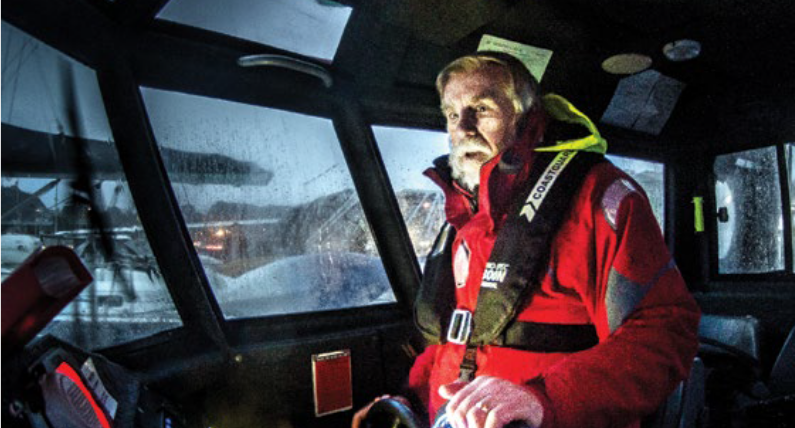
10 questions with... Geoff Layton
Coastguard Master Geoff Layton is a familiar face to generations of boaties in the Wellington Harbour. He explains a little more about why Coastguard appeals to him so much.
What is your current role in Coastguard?
I have three roles within Coastguard currently – I’m a skipper of the Wellington rescue vessels, which is the highest qualification within Coastguard and equivalent to piloting a harbour ferry, but with extensive SAR skills. For the last ten years I’ve been an instructor, and since about 2000 I’ve taken on the role of maintaining the unit’s navigation and comms equipment.
What made you get involved in Coastguard?
In April 1971, the then-President of the Wellington Sea Rescue Service came into the office of the radio company I was working for, and I signed up as a volunteer. The organisation had been set up not long after the Wahine sinking in 1968 and they went on to became part of Coastguard in 1991.
What is your day job?
I’m retired now, but I worked as an electronics engineer previously. That part of my life taught me a lot about how to get the best out of teams, and that’s something I’ve carried across into my volunteering with Coastguard.
How many people are involved with Coastguard Wellington?
We have about 70 people in the unit, spread across seven teams. We’re one of the biggest units in the country.
What’s changed since you started volunteering with Coastguard 50 years ago?
The training has become progressively more structured, and there’s now a formal training matrix that is reviewed regularly to make sure it’s up to date. We’ve also formalised how we recruit new volunteers. Each volunteer does three trial days out on the water before committing, so they get to meet three different crews and get a better sense of what’s involved.
Can you tell us about a memorable SAROP that you were involved with?
A few years ago, a well-known 70-foot racing yacht came to Wellington for a weekend, before heading out on a roundthe-world race. There were many boats following it, including us, when I noticed a small runabout directly in the path of the racing yacht. They were at anchor and couldn’t get their engine started. We gunned it towards them in our rigid inflatable rescue boat, tied a line to them and then went full throttle backwards and pulled them out of the way. The whole thing was over in a flash, but it could have been their lives over in a flash.
A lot of Coastguard work involves towing. What’s the longest tow you’ve ever done?
We once responded to a radio call from an 18-foot runabout near Lake Ferry in Palliser Bay. We had to tow him back to Lowry Bay, hanging vertically in the water. It was slow progress at 1.5 knots, and it took us about 6.5 hours to get him back to safety.
What do you do to relax?
My wife is a singer, so a lot of my downtime is spent supporting her musical endeavours. We also enjoy travelling, and if there’s a chance to visit a Coastguard unit then I will. I think I’ve visited around 45 Coastguard units, plus some in the US, the UK, and Australia.
What’s the most unexpected thing that’s happened to you while volunteering?
Recently I went out on what I thought was a training session in the rescue boat, when someone suggested we finish up with a coffee at a local café that has its own jetty. I got there to find that the unit had organised a surprise event to acknowledge my 50 years of service. It was so unexpected but very enjoyable.
What’s one key thing you’d like to pass on to others?
You don’t have to be a boatie to be a Coastguard volunteer. We will train people who have zero boating experience. The only qualifications you need are the ability to commit, as it can be a large time commitment. Our volunteers have a training session several times a month and are on duty for a day every fourth weekend.
This article was first published in the September 2021 issue of Link Magazine
